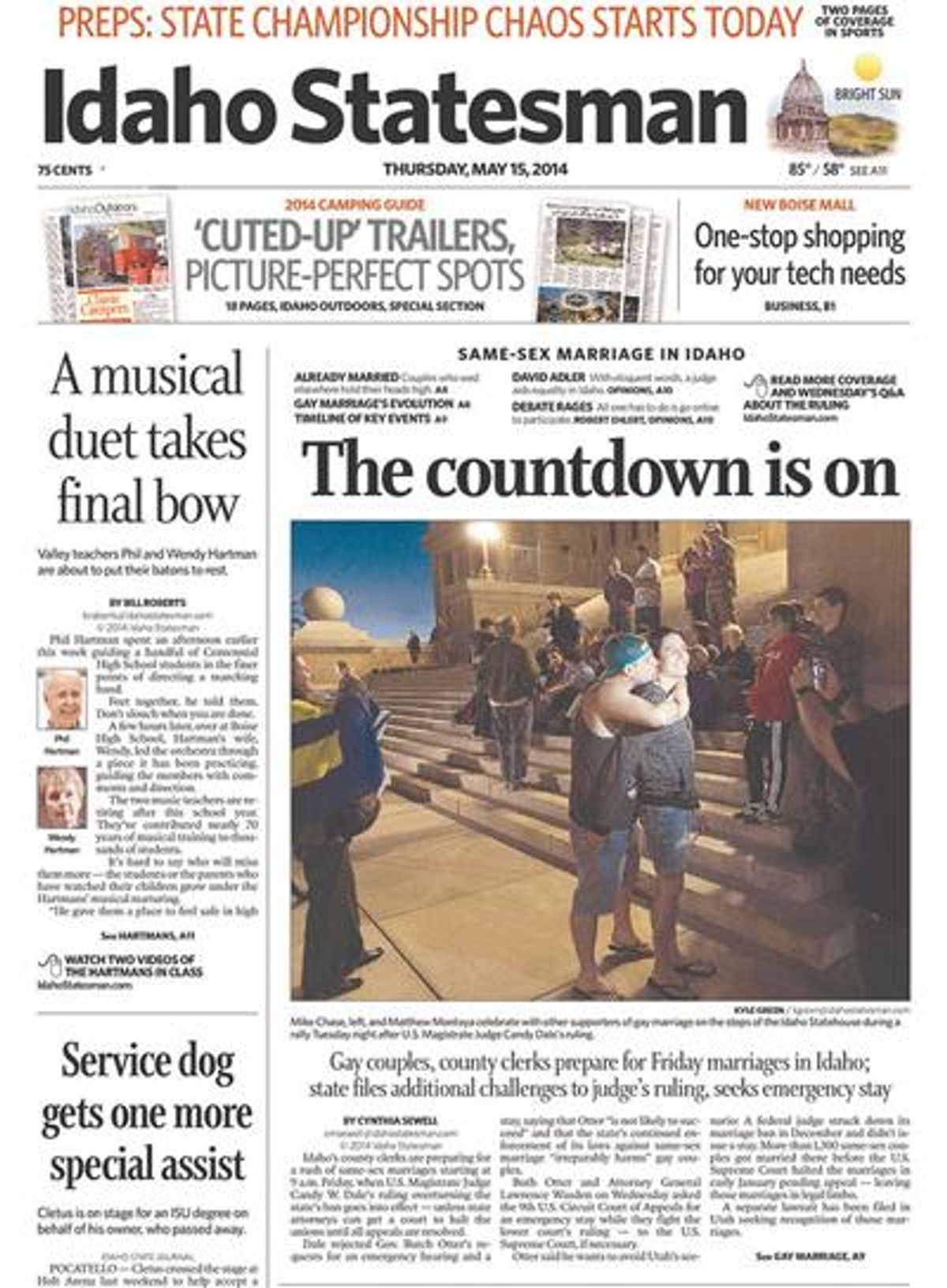After the judge who struck down Idaho's constitutional ban on same-sex marriage refused to stay her ruling, the state's Republican governor Wednesday filed an emergency appeal with the Ninth Circuit Court of Appeals, asking the federal court to stop marriage equality in Idaho before it's set to begin Friday.
Attorneys representing Gov. Butch Otter pointed to the recent decision from the U.S. Supreme Court that granted a stay on a similar ruling striking down Utah's ban on same-sex marriage, which put that ruling on hold while the state appealed the decision. Two lower courts denied Utah's initial request for a stay, resulting in an estimated 1,300 same-sex couples legally marrying before the U.S. Supreme Court ordered a halt to the weddings.
"Absent the stay requested by Governor Otter's emergency motion, there will be a repetition in Idaho of the unseemly chaos, confusion, conflict, uncertainty, and spawn of further litigation and administrative actions seen in Utah and, to a lesser extent, in Michigan," lawyers for Otter wrote, according to BuzzFeed's Chris Geidner. Geidner notes that Otter's new outside counsel, Monte Stewart, is also representing Utah alongside the state's attorney general in the aforementioned federal challenge to Utah's ban on same-sex marriage.
U.S. District Magistrate Judge Candy Wagahoff Dale Tuesday struck down Idaho's constitutional amendment banning same-sex marriage Tuesday, ordering the state to begin allowing such marriages at 9 a.m. Friday. The governor appealed that decision and filed a preemptive request for a stay, which Judge Dale denied Wednesday.
The case, known as Latta v. Otter, was filed by four lesbian couples and argued in court May 5. In her ruling, Dale agreed with the plaintiffs that Idaho's constitutional ban on same-sex marriage, approved by voters in 2006, violates the U.S. Constitution. That ruling marked the 16th consecutive decision in favor of marriage equality since the U.S. Supreme Court issued its landmark rulings last summer striking down the federal Defense of Marriage Act and invalidating California's Proposition 8. Three of those cases -- regarding laws in Utah, Oklahoma, and Virginia -- have now been argued before federal appeals courts, and at least six more are expected to be heard in appeals courts around the country this year, according to advocacy group Freedom to Marry. Most observers expect one or more of these cases to reach the Supreme Court in the coming years.
Nevertheless, attorneys for Idaho governor Otter argue that the state is likely to win its case on appeal, which is why the Ninth Circuit should grant the stay requested by the state. Otter has previously announced his intention to fight the pro-equality ruling all the way to the U.S. Supreme Court if necessary.



















































































Fans thirsting over Chris Colfer's sexy new muscles for Coachella